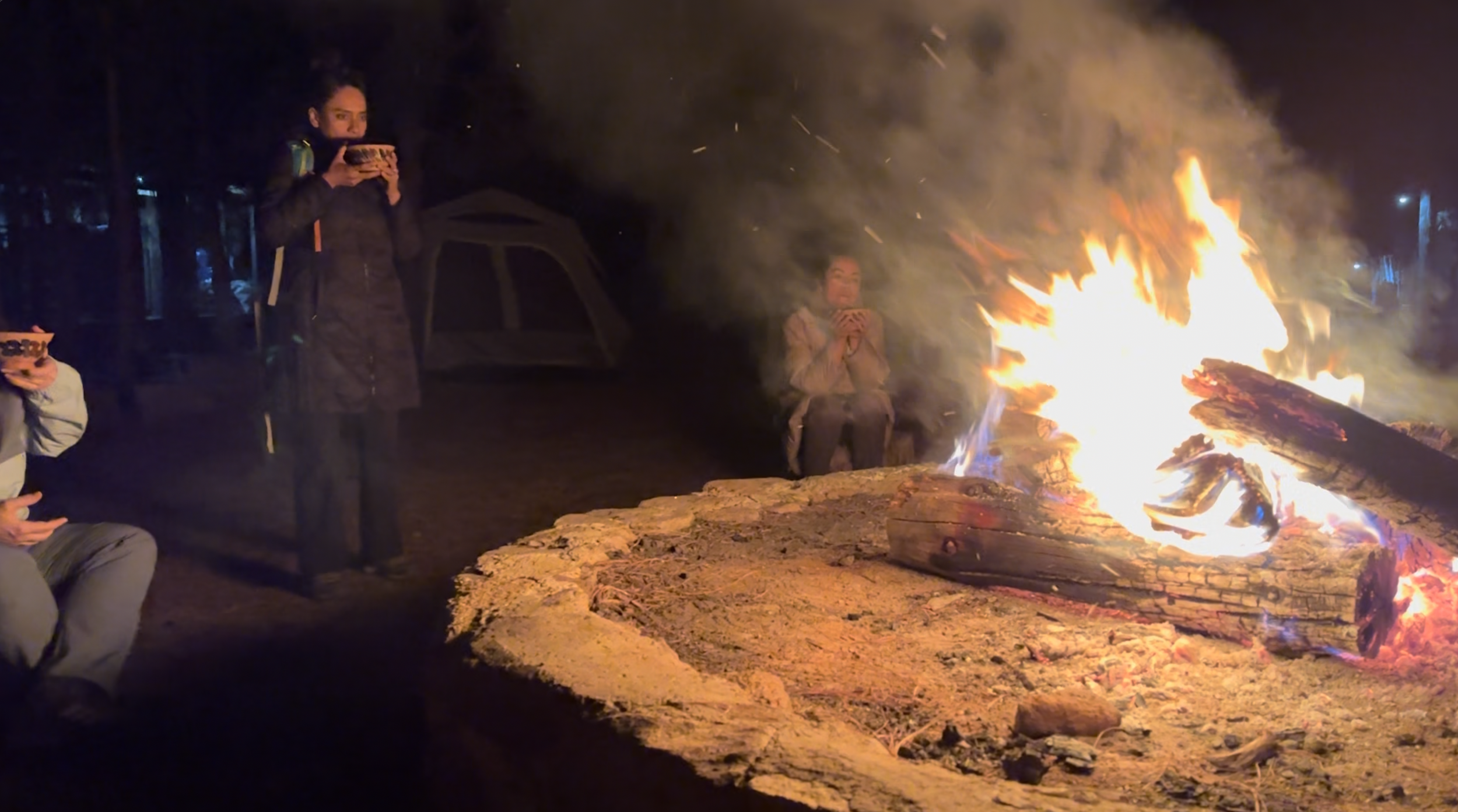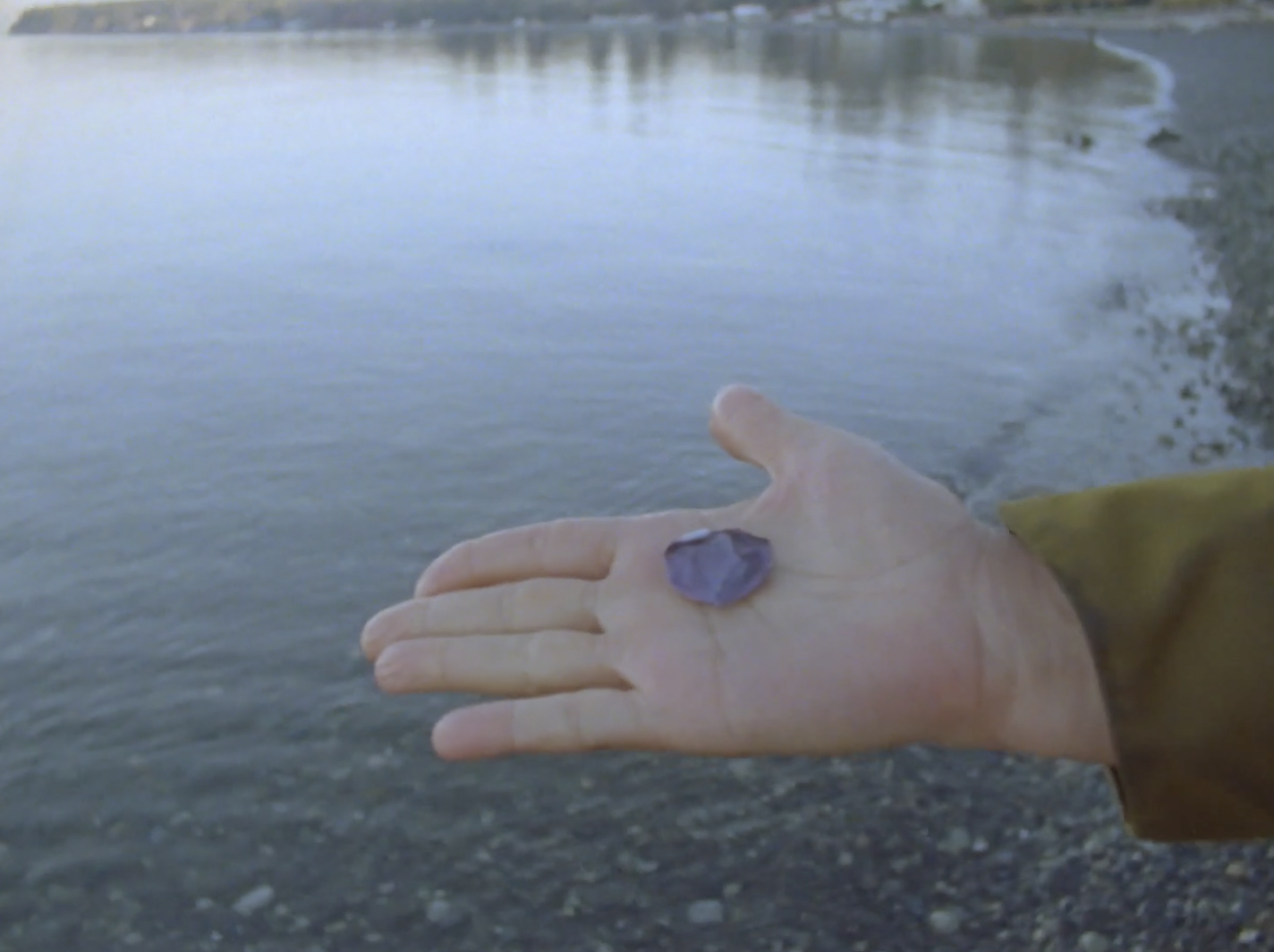
Ways of Being and Worlding
transdisciplinary research and practice
The New School / Parsons School of Design
Collective Fabulation Lab
Critical and collective fabulation provide rich soil from which story can emerge and transgress the boundaries and limitations of linear time, property forms and the crisis of imagination. Fabulation is a way of becoming-other through the co-creation of hybrid fiction/nonfiction stories that contribute to conditions for invoking a people to come.
Fabulations are processual, emergent imaginaries. They are narratives that unfold and reweave. Collective fabulation, in terms of this practice research space, is conducted as knowledge in action. It is a method of ontological practice through myriad tactical and improvisational ways of being, relating and becoming with the world.
The Most Dangerous Question
The Most Dangerous Question is artistic research through cinematic critical and collective fabulation. The film refuses to weave its fragments to be locatable in time and space and instead depicts the in-betweenness of intermittent presences in places across decades. It invites ways to lose oneself in the act of walking with the land and others; sojourns adrift in a transnational current, willful departures beginning at the end, the Japanese term michiyuki, a politics of subjective destitution.
Rehearsal Infrastructure
Rehearsal Infrastructure portrays public buildings in Bogotá, Colombia, that lack a definitive script and instead adapt (improvise) their purposes based on emerging daily necessities.
Life in the Fault Line
The University of California, Santa Cruz, and The New School are facilitating the Life in the Faultline initiative in the Brazilian Amazon, a region of vast biodiversity and rich cultural heritage that faces ongoing threats from deforestation, forced labor, and infrastructural disruption. At the center of these tensions is the BR-319 highway, a literal and metaphorical “faultline” that starkly exposes the conflicts between development and ecological coexistence.
Emergent Identities: Performance, Perception and Visual Representation
Evaristo and Raj, whose clown performances transcend linguistic and cultural boundaries, draw attention to the embodied and non-discursive modes of story-making and interaction. Their practice, rooted in transformation and shared experience, aligns with the broader inquiry into how identities are co-constructed and reimagined.
Shifting Roots: Echoes of Migration and Memory
Shifting Roots: Echoes of Migration and Memory is a participatory research project that explores the layered experiences of Albanian-American immigrants through memory, family archives, and storytelling. The work unfolds through collaborative photo collages, silhouette cutouts, and a home video series co-edited with family members.
Adventure Lab: Possible Worlds in Practice
Adventure Lab reimagines tabletop roleplaying game facilitation through the lens of the "Console"—a framework that positions the facilitator not as a [dungeon] master or authority but as a platform enabling collective imagination and a source of care and support for participants.
My Middle Name
My Middle Name is an artistic and design research-driven body of work that reanimates elements of the life, identity, and collective memory of the researcher and artist's late uncle Don, one of Canada's most successful male models in the 1970s and 80s. Through autoethnography and archival exploration, artist Mikhail Zalesky reconnects with Don's life. His own queer becoming informs and inhabits expressions, deepening his understanding of self, inherited queerness, and the collective queer experience.
“For many Indigenous Nations, as it was practiced in the Truth and Reconciliation Commission, to bear witness, and community witnessing, is foundational for collective healing and transformation, honoring the truth of lived and living experiences. Fabulation amplifies the spirit of this natural law and governing principle in regenerative and mysterious ways that host the potential to surprise, ravel and awaken the deeper movements of the journey towards ways forward.”
— Erin Dixon (Giizhigaate, Ashati Sakahikan)

Contact
Feel free to contact us with any questions.






